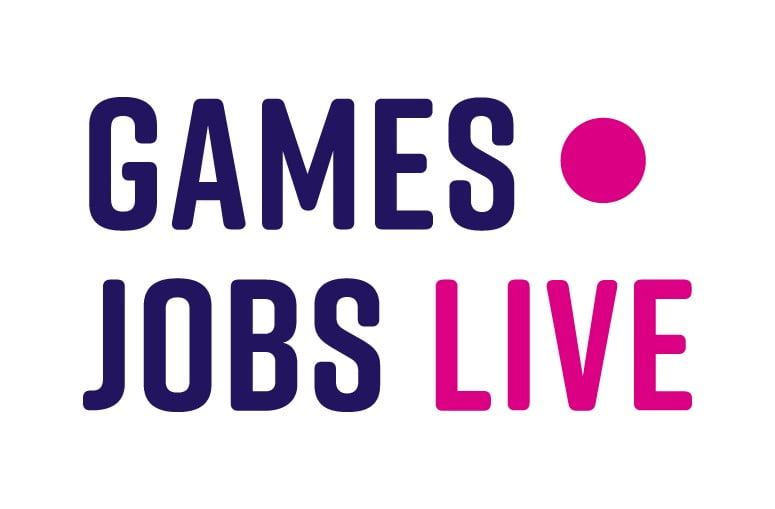HISTORY
The history of game development in the North West goes back almost as far as the history of home videogames themselves. Bug-Byte, the company responsible for classic British Spectrum game Manic Miner, was founded in Liverpool as early as 1980. Not far behind were Ocean Software, then known as Spectrum Games, who began operating out of Manchester in 1983.
Bug-Byte’s reign was as prolific as it was short, with the company folding in 1985 after working on nearly 100 titles. Ocean Software, however, proved more durable and in fact ended up buying out one of Bug-Byte’s various offshoot companies, Imagine Software.
While Imagine’s name and trademarks went to Ocean as part of that acquisition, two of its employees – David Lawson and Ian Hetherington – did not. Instead, the pair went on to found Psygnosis, one of the North West and indeed the UK’s most storied developers and publishers. Pygnosis had a number of early successes, including publishing worldwide hit Lemmings in 1991, and during the mid-90s were responsible for nearly half of the whole European games market. Pygnosis helped cultivate a number of small UK studios in their role as a publisher, but they are perhaps most well remembered for their work on racing games such as WipEout and Formula One.
Traveller’s Tales, who began life in Cheshire in 1989, were one of the companies who Psygnosis helped kickstart. Now synonymous with the Lego games, Traveller’s Tales earned a reputation for producing high quality effects with Psygnosis that landed them jobs with Sega working on the Sonic franchise and Disney producing Pixar tie-ins.
Pygnosis also played a key role in the story of another Liverpool-based racing game specialist, Bizarre Creations, who they brought in to develop 1996’s Formula One. While Bizzare later became tightly associated with Microsoft as developers of the Project Gotham Racing series, Pygnosis was consolidated into Sony as SCE Studio Liverpool. The studio continued to work on the WipEout and Formula One games and closely consulted on the development of the PlayStation Vita before being shuttered in 2012.
Also part of the racing game picture in the North West (and also owned by Sony) were Evolution Studios. The Chesire-based studio released the first officially licensed World Championship Rally game and developed cult-favourite racing franchise Motorstorm during the PS3 generation.

NOW
The racing spirit is still very much alive in the North West thanks to Codemasters Chesire, the successor to Evolution Studios, and high-end racing sim developers SimBin in Liverpool. While SCE Studio Liverpool is no more, a group of employees formed spin-off studio Firesprite and still maintain a strong relationship with Sony, having developed two titles for PlayStation VR.
Many of Bizarre’s original programmers, designers and artists now have jobs together in Liverpool as Lucid Games, while over in Cheshire, Traveller’s Tales are enjoying their fourth decade in the business.
Plenty of younger companies have joined them too. Fabrik Games, another descendent of Studio Liverpool, opened its doors in Manchester in 2014. Fabrik are based in The Sharp Project, a digital production space that also houses Sigtrap Games and mobile games publisher Boomdash Digital. Also in the Manchester area are Prospect Games, probably the only team in the world to have made a whole game about sentient cardboard boxes. As well as producing their own quality content, Prospect are proud to have sent their alumni onto jobs at the likes of Rockstar, Playtonic Games and Codemasters.
Back in Liverpool there are a handful of teams formed by veterans gone indie. One is Atomicon, who have been putting their triple A chops to work on a range of smaller scale titles like House of Golf and JCD: Mars Pioneer since 2005. Another is Cosmonaut, who based the setting of their atmospheric puzzle game Enteral Threads on their North of England surroundings. Based in the Baltic triangle, Wushu Studios (another team with roots in Evolution Studios) are a multi-disciplined co-developer with inhouse QA testers, as are d3T, who were named one of the Best Places to Work in 2020 by gamesindustry.biz.
Games studios generally hiring include: Codemasters Chesire, Traveller’s Tales and d3T.

THE AREA
The North West pulls off the seemingly contradictory feat of being one of the most populated regions in the UK while also laying claim to some of the most picturesque, expansive natural landscapes the country has to offer. As well as having Manchester and Liverpool to choose from, North Westerners have the Lake District and the Pennines on their doorstep, and with them a bounty of easily accessible opportunities for hill walking, cycling, sailing, star-gazing and just generally revelling in the great outdoors.
Manchester and Liverpool should be on everyone’s bucket lists, but North Western residents get the benefit of getting to know them on a deeper level.
Once you’ve gotten the usual tourist stops out the way (the triple threat of the Science and Industry Museum, National Football Museum and Manchester Art Gallery will give you a good overview of what this football loving, culturally rich, industrial city’s all about) Manchester has loads to keep you busy year-round.
The Northern Quarter is the creative heart of the city, where you’ll find street art, music venues, boardgame and comic book shops and trendy bars. It’s there that you’ll also find the Chinese Centre for Contemporary Art, the UK’s premier institution for exploring the radical fringes of modern Chinese culture.
For something a bit more old-fashioned there’s Castlefield Urban Heritage Park. Site of the world’s first railway station and the world’s first stored program computer. Follow Deansgate further into the centre and you’ll pass the Hogwarts-like John Rylands Library before reaching Chetham’s Library, where you’ll find Karl Marx’s preferred study spot. On the subject of renowned historical figures, the Pankhurst Centre is small but well worth your time, while every programmer probably owes the Alan Turing memorial a visit at some point.
On the recreation side of things, you’d probably need the best part of a lifetime to work through Arcade Club’s enormous, eclectic collection (with locations in Bury and Blackpool) and if you like your fun a bit more physical there’s The Crystal Maze Live Experience, probably the closest thing going to a real life arcade game.
Of course Liverpool’s also a fantastic city for tourists but let’s face it – there’s a whole lot more to a day in the life of a Liverpuddlian than Anfield and the Beatles. Like all the best cities, Liverpool is largely walkable, and that walk could take you along the waterfront at Albert Dock, through the hipster hangouts of digital and creative hotspot The Baltic Triangle, or to the grazing spot of Liverpool’s unofficial mascot, Superlambanana.
Little known fact: the Liverpool area has its very own Death Stranding experience in the form Anthony Gormly’s sculpture series Another Place. Check out Crosby Beach and you’ll find 100 naked men staring out to sea, each presumably deeply enthralled in their own metaphysical awakening.
While you’re living out your virtual fantasies you might want to check out NQ64, an arcade cocktail bar in Liverpool city centre that, with its nostalgic dayglo interior, does an excellent impression of Black Mirror’s San Junipero. (There’s one in Manchester too.)

COMMUNITY
Game Cluster Liverpool is a friendly network that keeps the local game dev community abreast of any news or events. Gameopolis does the same for Manchester, while also hosting some of its own events like indie dev pub nights and panels with industry luminaries.
USEFUL LINKS
Tourism: https://www.visitengland.com/destinations/north-west-england
Tourism: https://www.lakedistrict.gov.uk/visiting
Tourism: https://www.northpennines.org.uk/
Tourism: https://www.visitmanchester.com/
Tourism: https://www.visitliverpool.com/
Community: http://gameopolis.org.uk/
Community: https://www.facebook.com/GameClusterLiverpool
Article by Andrew Gordon

